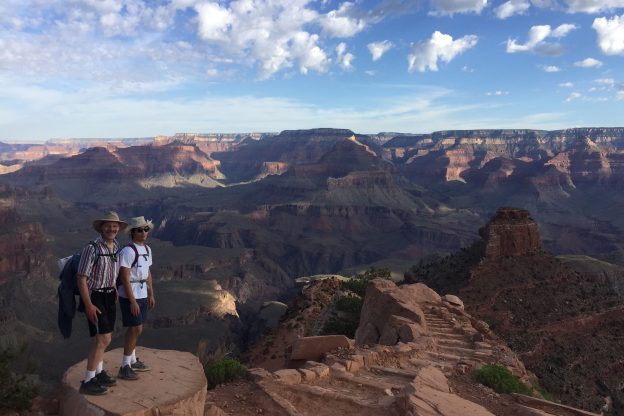
5 questions for … Dr. Darryl Palmer-Toy
Darryl Palmer-Toy, MD, PhD, is the physician director of the Regional Reference Core Laboratories for Kaiser Permanente Southern California. He has been in this position for 5 years. In this role, Dr. Palmer-Toy oversees the ancillary, clinical chemistry, and immunochemistry departments, which perform about 20 million tests per year. A student of proteomics (the study of proteins expressed by the genome) and biomarker discovery, his more recent research interests focus on SARS-CoV-2 serologic testing.
How does the Regional Reference Laboratory contribute to research at Kaiser Permanente?
We’re the source of test results for millions of Kaiser Permanente Southern California members. That’s everything including clinical chemistry, bacteriology, immunology, molecular testing, and tissue-based diagnostics. Much of Kaiser Permanente Southern California’s preventive health efforts are anchored in our test results: cervical and colorectal cancer screening, sexually transmitted infection screening, hemoglobin A1c, lipid panels, urine albumin/creatinine, to name a few. By mining our clinical test results and by partnering with researchers to perform more customized analyses, we’re deeply involved in research.
Can you tell us about the COVID-19 serologic study grant you recently received from the Garfield Memorial Fund?
There are 2 aims of the study. For the first aim, we’ve identified thousands of patients with positive SARS-CoV-2 serology (blood tests indicating a past infection) across 4 Kaiser Permanente regions (Colorado, Northwest, Southern California, and Washington). Most of those had never had a positive RNA test result (nasal or saliva test indicating a current infection) because they were never tested or were not tested at the appropriate time to detect an active infection. Consequently, they may not appear in any of our COVID-19 databases. We are interested in whether those patients are still susceptible to post-acute sequalae (long-term effects) of COVID-19 infection (PASC), or “long-haul COVID.”
The other aim is looking at SARS-CoV-2 serology in patients who have been vaccinated. We seek to understand how well commercial serologic assays (blood tests) for SARS-CoV-2 reflect vaccination status and effective immunity, whether post-vaccination serologic response varies by demographics and prior infection, and whether the serologic response predicts the risk for infection or re-infection.
How do SARS-CoV-2 serologic assays work?
There are 2 types of SARS-CoV-2 serologic assays. The first type looks for anti-nucleocapsid protein antibodies, which are the best marker of past natural infection. The second type looks for anti-spike protein antibodies, which are thought to better reflect effective humoral immunity (virus-neutralizing antibodies). Only the anti-spike protein antibodies would be elevated in a patient who hasn’t been previously infected but who has been vaccinated. So, the second aim of the study is looking at levels of SARS-CoV-2 anti-spike protein antibodies in vaccinated patients over time as measured by 6 commercially available assays, along with weekly RNA (self-collected saliva) test results. We want to see how well they reflect vaccination-induced immunity and its durability over time.
For the second study aim, you are recruiting 2,000 health care workers from Kaiser Permanente Southern California. Why is the focus specifically on employees and physicians?
One reason is that, fortunately, we have very high rates of vaccination among our employees and physicians. Also, many of them have reached out trying to obtain serologic testing to see whether their vaccine was effective, so we figured they would be interested in furthering this research. Our plan is to collect blood samples at 6 to 7 months and 12 to 13 months post-vaccination, which may be modified as enrollees receive the recently authorized booster dose. We intend to couple the serologic results with weekly RNA test results to detect any asymptomatic breakthrough infections. We thought this would be most convenient for our employees and physicians who are already at the facilities so they can collect and submit their samples. Lastly, we have a very diverse community of employees and physicians, and so we thought this would be a good way to capture the breadth of our Southern California community.
What do you enjoy doing in your spare time?
I mostly enjoy hiking with my family and dogs. We do a lot of hiking in the Santa Monica mountains, and we’re all great enthusiasts for state and national parks. My kids–Bryce and Acadia–were both named for national parks.
Image: Dr. Palmer-Toy and son Bryce at the Grand Canyon.





